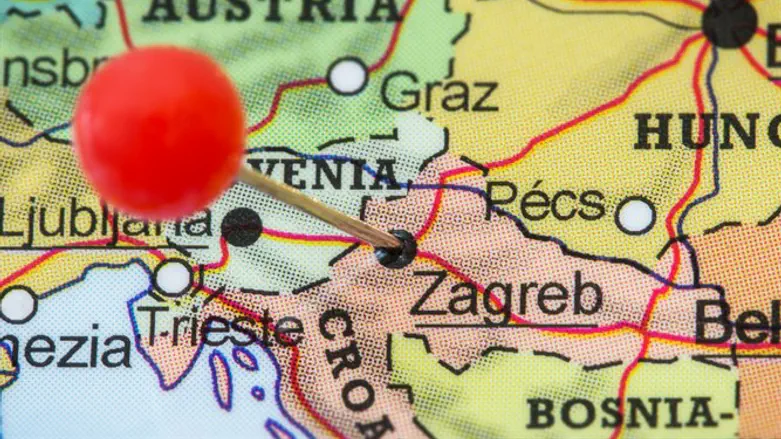
A mass to be held in Sarajevo at the weekend for Croatia's pro-Nazi collaborators and civilians killed by communist partisans after World War II has sparked outrage in the Bosnian capital.
Commemorations for the victims are organised every May near the southern Austrian town of Bleiburg, but were cancelled this year due to the novel coronavirus pandemic.
Held under the auspices of the Croatian parliament, the events, which have seen Nazi insignia flaunted by Croatian groups, are co-organised by Catholic Churches in Bosnia and Croatia.
Sarajevo Archbishop Vinko Puljic is due to hold the mass on Saturday for the victims which the organizers decided would take place in the city's cathedral.
The mass provoked outrage from most political parties and non-governmental organisations as well as the Serbian Orthodox Church and Jewish leaders.
In a tense atmosphere, police have been regularly patrolling near the cathedral in recent days, an AFP correspondent said.
Croatia's pro-Nazi regime persecuted and killed hundreds of thousands of Serbs, Jews and anti-fascist Croatians.
At the time the so-called Independent State of Croatia (NDH) included Bosnia and parts of Serbia.
"This mass will commemorate... the butchers of our mothers, our fathers, our grandfathers and all our innocent fellow citizens killed by the fascist NDH," Bosnia's Jewish leaders, Jakob Finci and Boris Kozemjakin, said in a letter to Puljic.
Meanwhile, the Simon Wiesenthal Center urged the Bosnian government to ban the memorial mass.
"We would greatly appreciate it if your government would prevent this travesty of memory and justice from taking place," the organisation's leading Nazi-hunter Efraim Zuroff said in a statement.
Archbishop of the Serbian Orthodox Church in Sarajevo, Hrizostom, recalled that "more than 10,000 Sarajevo inhabitants, Serbs, Jews, Roma and other people opposing to the Ustasha movement were killed" during the war.
"You are holding a mass for those who committed those crimes," he said in a letter to Puljic and regretted the "apology... for the Ustasha movement".
But the cardinal rejected the accusations and said that praying for the victims' souls did not mean approval of their acts.
Anti-fascist NGOs called for a peaceful march during the mass.
Near the end of WWII, the Ustasha, accompanied by civilians and Slovenian and Serbian collaborators, started to flee towards Austria in a bid to surrender to British forces.
But the British refused their surrender.
The Ustasha were caught and executed by Josip Broz Tito's partisans in the border region between Austria and Slovenia.
The number of those killed in the Bleiburg area is still debated, but independent historians put it at tens of thousands.